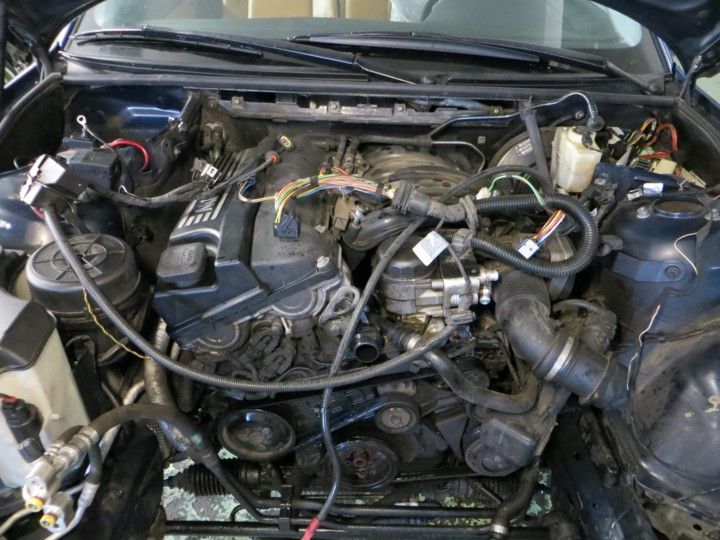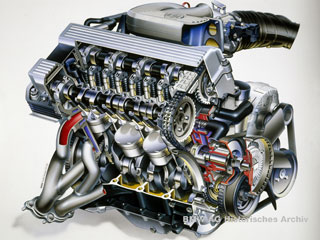BMW 318ti: A Timeless Compact with Classic Allure
BMW 318ti: A Timeless Compact with Classic Allure
Blog Article
Key Features to Look for When Acquiring an Engine for Automotive Applications
When taking into consideration the acquisition of an engine for auto applications, numerous vital attributes necessitate mindful analysis to make certain optimal performance and functionality. From power and efficiency capacities to sustain adherence, durability, and performance to discharges requirements, each aspect plays an essential duty in establishing the engine's viability for certain automotive demands. Cost-effectiveness remains a crucial element in the decision-making procedure, balancing quality with monetary considerations. These functions collectively contribute to the overall effectiveness and reliability of the engine, affecting the driving experience and long-term fulfillment of the user.
Power and Performance
When choosing a vehicle engine, customers focus on power and efficiency to ensure optimal driving experience and efficiency. The power output of an engine, commonly measured in horsepower (HP) or kilowatts (kW), dictates the acceleration, top speed, and overall capabilities of a vehicle. Greater power rankings generally result in quicker acceleration and much better efficiency, particularly during overtaking or carrying heavy loads. Efficiency, on the various other hand, incorporates a wider spectrum of attributes, including fuel efficiency, exhausts, integrity, and total driving characteristics. A well-performing engine not only delivers power effectively but also runs efficiently throughout different speed arrays and driving problems.
Purchasers typically think about the engine's torque result along with its power rating. Torque, determined in pound-feet (lb-ft) or Newton-meters (Nm), reflects the engine's rotational pressure, influencing the vehicle's capacity to tow, climb inclines, and increase from dead stop. A balance in between power and torque is essential for achieving a responsive and versatile driving experience. In addition, elements such as engine variation, hybrid, and turbocharging technologies play substantial roles in improving both power and efficiency levels. Ultimately, choosing an engine that offers a potent mix of power and performance makes sure a reliable and satisfying driving experience. bmw 318ti.
Gas Effectiveness
Maximizing fuel effectiveness is a vital factor to consider for consumers when assessing vehicle engine alternatives. Modern engines with features like direct gas shot, turbocharging, and variable valve timing can substantially boost gas efficiency by improving combustion processes and minimizing power loss.

Resilience and Integrity
Accomplishing long-lasting efficiency and reliable procedure is vital for consumers evaluating the toughness and reliability of auto engines. When considering an engine for auto applications, resilience describes the engine's ability to stand up to wear, stress, and extreme operating problems over an extensive period. Dependability, on the various other hand, implies that the engine can constantly perform its designated feature without unanticipated break downs or failings.
Customers should seek engines built with top notch products and accurate engineering to make certain longevity. Components such as crankshafts, pistons, and bearings must be sturdy to handle the engine's power output without early wear. Furthermore, engines outfitted with advanced cooling systems, effective lubrication, and robust filtration systems have a tendency to display greater degrees of integrity.
Routine maintenance and adherence to manufacturer referrals are also crucial elements in protecting an engine's longevity and reliability. By adhering to upkeep routines, utilizing recommended liquids, and resolving any issues quickly, consumers can make best use of the life-span and efficiency of their auto engines. Eventually, prioritizing sturdiness and reliability in engine selection can lead to an extra enjoyable ownership experience with fewer unexpected interruptions.
Emissions Compliance
Guaranteeing compliance with exhausts guidelines is an essential element of assessing automotive engines for eco mindful consumers. With increasing problems concerning air quality and ecological effect, strict exhausts requirements have been placed in place around the world to minimize unsafe contaminants released right into the atmosphere. When buying an engine for automotive applications, it is important to consider its exhausts compliance to decrease the carbon footprint and adhere to legal requirements.
Modern engines are outfitted with sophisticated exhaust control innovations such as catalytic converters, exhaust gas recirculation (EGR) systems, and discerning catalytic reduction (SCR) to lower hazardous exhaust gases like nitrogen oxides (NOx), carbon monoxide (CARBON MONOXIDE), and hydrocarbons (HC) These systems play an essential function in ensuring that the engine meets the defined emissions requirements and runs within acceptable limitations.

Cost-effectiveness
When considering automotive engine acquisitions, reviewing cost-effectiveness is paramount for customers looking for both performance and value. It incorporates the total costs associated to maintenance, gas intake, and prospective repair work over the engine's lifespan.
Engines that are created to make the most find out here of gas economic climate can lead to significant savings over time, especially for people that drive often or over lengthy distances. bmw 318ti. In addition, thinking about the availability and cost of extra parts and servicing can add to the overall cost-effectiveness of an engine.

Conclusion
In final thought, when acquiring an engine for automotive applications, it is vital to take into consideration key use this link features such as power and performance, gas sturdiness, dependability and effectiveness, emissions conformity, and cost-effectiveness. These factors are essential in ensuring that the engine satisfies the needs of the vehicle and runs properly in numerous driving problems - bmw 318ti. Making a notified decision based on these standards will inevitably cause a efficient and effective auto engine purchase
From power and performance capabilities to sustain adherence, longevity, and performance to discharges criteria, each facet plays a vital role in determining the engine's viability for specific auto requirements. Engines designed to run on different fuels such as electrical power, hybrid systems, or biofuels can offer enhanced fuel economic climate and lower exhausts compared to typical gas or diesel engines. Consumers must thoroughly take into consideration the fuel performance ratings and modern technologies incorporated right into automotive engines to make educated buying choices that straighten with their priorities for cost financial savings and sustainability.
When considering an engine for vehicle applications, resilience refers to the engine's capacity to stand up to wear, anxiety, and harsh operating problems over an extensive period.In conclusion, when buying an engine for vehicle applications, it is important to take into consideration key functions such as power and efficiency, gas longevity, reliability and efficiency, emissions compliance, and cost-effectiveness.
Report this page